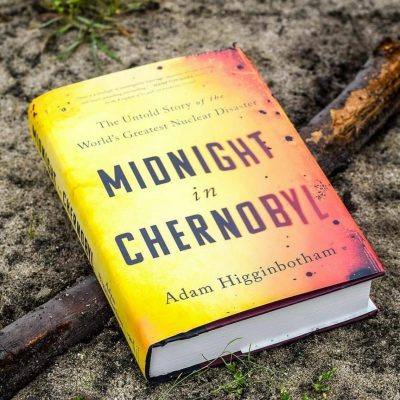 The role of the humanities and liberal arts education in the 21st century is a topic of intense debate. If the sciences are the foundation for inventing new technologies, the humanities are the foundation for implementing these technologies sustainably and ethically. Adam Higginbotham’s account of the Chernobyl accident is what the New York Times called “an enthralling and terrifying history” of technology gone wild in human hands. There is no better evidence of the role of politics, ethics and psychology in the making of a disaster over a period of decades. The Chernobyl accident was not a human error of the moment, nor a slip in judgment that inevitably happens to scientists and engineers when we fumble with experiments and machines on a daily basis. It was the result of an entire political system that pursued short-term wins, covered inconvenient truths, and promoted allegiance to ideology.
The role of the humanities and liberal arts education in the 21st century is a topic of intense debate. If the sciences are the foundation for inventing new technologies, the humanities are the foundation for implementing these technologies sustainably and ethically. Adam Higginbotham’s account of the Chernobyl accident is what the New York Times called “an enthralling and terrifying history” of technology gone wild in human hands. There is no better evidence of the role of politics, ethics and psychology in the making of a disaster over a period of decades. The Chernobyl accident was not a human error of the moment, nor a slip in judgment that inevitably happens to scientists and engineers when we fumble with experiments and machines on a daily basis. It was the result of an entire political system that pursued short-term wins, covered inconvenient truths, and promoted allegiance to ideology.
Does this remind you of anything in our current handling of a crisis?
And yet I am sure that there will be many climate-change deniers who read the book and sneer at the incompetence and blindness of their Soviet counterparts of 1986.
Regardless, you will also have supreme fun reading this book that is written as a Stephen King suspense novel.
– Marisa Chrysochoou
Professor of Civil and Environmental Engineering
University of Connecticut
 Who is Marisa Chrysochoou? Marisa Chrysochoou is a professor and the head of the Civil & Environmental Engineering Department. She received her Ph.D. in 2006 from the Stevens Institute of Technology. Her research focuses on fate and transport metals in the environment, environment and surface chemistry, and treatment and reuse of industrial waste, contaminated soil, and sediments. She has also been awarded a prestigious Marie Curie International Incoming Fellowship.
Who is Marisa Chrysochoou? Marisa Chrysochoou is a professor and the head of the Civil & Environmental Engineering Department. She received her Ph.D. in 2006 from the Stevens Institute of Technology. Her research focuses on fate and transport metals in the environment, environment and surface chemistry, and treatment and reuse of industrial waste, contaminated soil, and sediments. She has also been awarded a prestigious Marie Curie International Incoming Fellowship.

